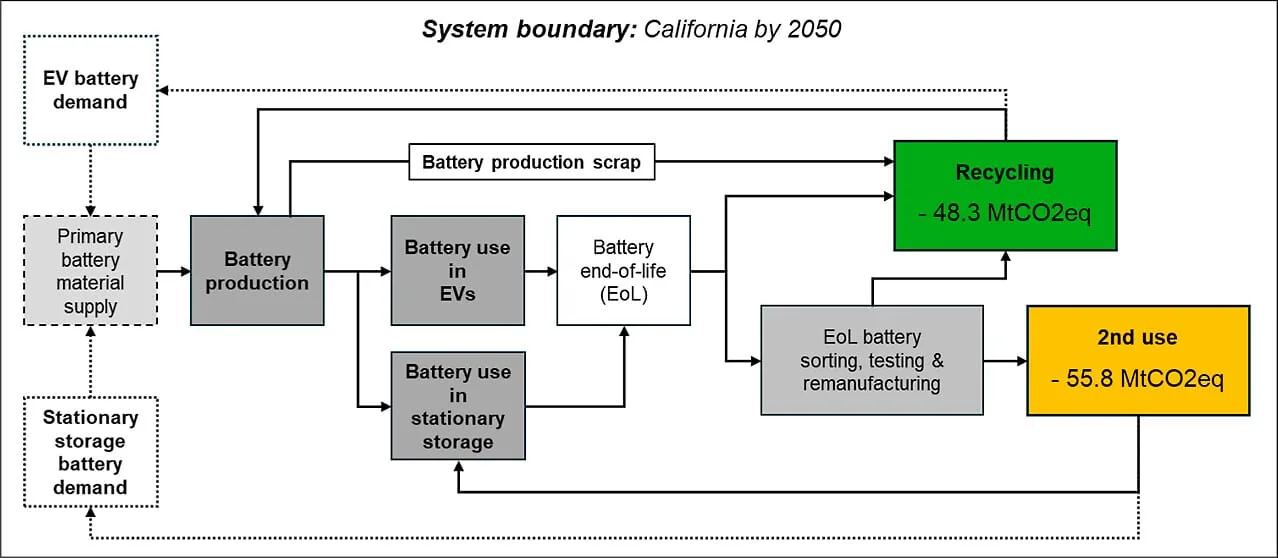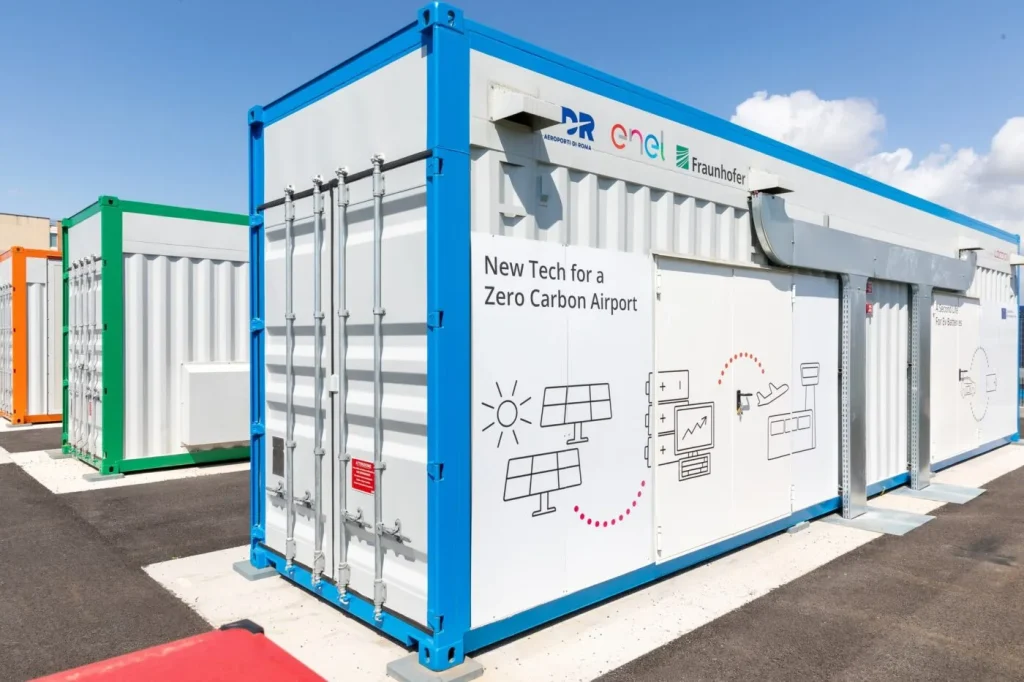With the increasing sales of electric cars, the question arises as to what happens when these vehicles have had their day. After all, their batteries contain valuable raw materials. A German-American research team has investigated whether recycling or reuse in stationary storage systems makes more sense.
Sales of electric vehicles continue to rise worldwide, and it is therefore important to clarify what will happen when these electric cars are phased out of use. One particularly exciting question is what can be done with the electric car batteries, the expensive centrepiece of every electric car, which contains valuable raw materials that are usually extracted in a way that is harmful to the environment.
A research team from the University of Münster, the Fraunhofer Research Facility for Battery Cell Production (FFB) and the Lawrence Berkeley National Laboratory (USA) has investigated precisely this: Is it more worthwhile to recycle old electric car batteries? In other words, to break them down into their individual parts and recover raw materials, primarily for the production of new electric car batteries, or is it better to recycle them secondarily, for example, as stationary power storage units for solar systems? The latter is known in the industry as a second life or second-use application.
Both strategies have advantages. Recycling allows important raw materials such as lithium, cobalt and nickel to be recovered and used for new batteries. This helps to reduce dependence on environmentally harmful mining, and at the same time, to become less dependent on China, which dominates the global market for lithium, can dictate prices and also works with export restrictions. The study shows: In California, around 61 per cent of the demand for new e-car batteries could be covered by recycling by 2050.
The second-use strategy, on the other hand, continues to use the batteries after they have served their purpose in electric cars, for example, as stationary storage for solar or wind energy in households or power grids. Even if these batteries no longer provide full power, they are completely sufficient for stationary applications. The researchers show that these discarded batteries could cover the entire demand for stationary storage by 2030. Lithium iron phosphate batteries (LFP) are particularly suitable for this, as they require fewer raw materials anyway.
There are already functioning second-use installations in Europe, such as Rome’s airport and the Porsche plant in Leipzig. The German startup Voltfang has also specialised in this area.
Carbon footprint: reuse is ahead
But which method saves more greenhouse gases? Second use comes out on top here. The study calculated that if California consistently relies on second use, around 55.8 million tonnes of CO₂ equivalents can be saved by 2050; that’s about as much as the annual emissions of over twelve million cars with combustion engines. The figure for recycling is 48.3 million tonnes.
Although more batteries are processed during recycling, the additional benefit of reuse in a stationary energy storage application weighs more heavily in the carbon footprint. The study also takes transport routes and reprocessing processes into account.

Despite the advantages of secondary use, the scientists recommend investing in the expansion of the recycling infrastructure at an early stage. This is because as soon as the demand for stationary storage is met, more recycling material will be produced again. Only a systemic approach with the coordinated planning of production, secondary use and recycling can enable a sustainable circular economy for batteries in the long term.
So, what to do with the growing amount of used batteries? The researchers’ answer favours a clever combination. First, second use, where possible, then recycling. In this way, resources can be conserved, greenhouse gases reduced, and the environment relieved. California could be a pioneer here and show how electromobility not only drives cleanly, but also ends cleanly.
pubs.acs.org, uni-muenster.de

